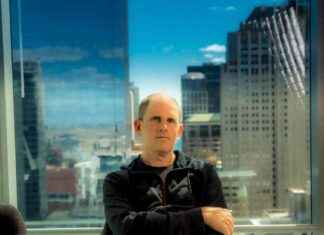The far-right beats Massa by more than twelve percentage points
The Peronist candidate congratulates Milei: “He is the president that the majority of Argentines elected for the next four years”
MADRID, 20 Nov. (EUROPA PRESS) –
The far-right Javier Milei, from La Libertad Avanza, won the Argentine presidential elections this Sunday by beating his rival, the Peronist candidate and Minister of Economy Sergio Massa, by more than twelve percentage points of difference, according to 86 percent of the scrutiny.
Milei will be the president of Argentina starting December 10, having received 55.95 percent of the votes compared to the 44 percent that Massa obtained, who before the results of the elections were published called the libertarian to “congratulate him and wish him luck, because he is the president that the majority of Argentines elected for the next four years.”
“The most important thing that must be left to Argentines is the message of coexistence, dialogue and peace in the face of so much violence and disqualification, it is the best path we can take,” he stated. “There were two paths, we opted for the security system in the hands of the State, we defended the path of defending education and public health as central values, for our SMEs, which is the best way to build prosperity, upward social mobilization and progress for our nations,” he expressed.
The official candidate, in his speech, has announced that “a stage” of his political life is ending, although he has added that he will continue “defending the values ??of work, public education, national industry, federalism, as central values of Argentina”. “I want to tell you from a personal point of view that I tried to leave all the best of me in the campaign, I did it convinced because I deeply love Argentina,” he stated.
Participation was 76.37 percent, a figure higher than the first round of the elections, held on October 22. In Argentina, voting is mandatory, except for exceptions contemplated by law and which the voter must in any case justify. Failure to attend implies a fine and, in case of non-payment, disqualification from carrying out proceedings before official organizations for a whole year.
The outgoing president, Alberto Fernández, has indicated that “the people have expressed their will” by going to the polls and defining “the destiny of the country for the next four years.” “I am a man of democracy, and I value nothing more than the popular verdict. I trust that tomorrow we can start working with Javier Milei to guarantee an orderly transition,” he added.
Likewise, he took the opportunity to thank Massa for his work throughout the campaign and stated that he will continue “working to strengthen democracy and the institutions of the republic, in unity with all the sectors that make up the national movement that has always will fight for a just, free and sovereign country.”
For her part, Patricia Bullrich, who came third in the first round and had given her support to Milei, has asserted that “the change won.” “Congratulations Milei for your resounding and historic victory. This Sunday the profound change for which we have been working for years won. We are millions of Argentines willing to defend the freedom and progress for which we are fighting so much, which you have been able to represent with clear ideas “.
Standard bearer of the so-called libertarians, Milei has focused the campaign on pointing out traditional politics and its ruling class, which he defines as caste, as mainly responsible for Argentina’s ills. However, the support of Bullrich – who congratulated him “from the bottom of his heart” and stated that “a new Argentina is beginning” – caused him to tone down his tone.
In social matters, Milei leaves no room for doubt and has already made it clear, sometimes with more histrionics than is assumed of a political leader, that if it were up to him he would reduce the role of the State to the point of justifying voting against a law that detects congenital heart disease in babies before birth because it would mean more public spending.
“I am a libertarian liberal, philosophically, I am a market anarchist,” he once said. He has been against abortion, even if the pregnancy comes from rape, but he does think it is a good idea to create a market to promote the buying and selling of organs. He defends dollarizing the economy and has questioned the official figure of 30,000 disappeared during the last dictatorship.
One of his latest controversies has been his defense during Sunday’s debate of the former British Prime Minister Margaret Thatcher, for whom he has always felt a great affinity and whom he described as a “great leader”, which has caused rejection, for example, of groups of veterans of the Falklands War.
For his part, Massa has been dealing with the paradox of being responsible for the finances of a country that is going through one of its worst economic moments and a strong candidate who aspires to be in power for another four years, appealing again to in a particular way to the working class, the sector that Peronism traditionally turns to in order to get votes.







